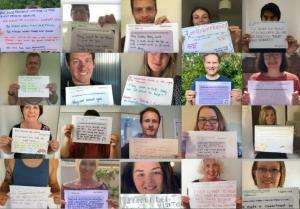'A key part of The Children Act 1989 is being overlooked'

Published by Professional Social Work magazine 18 August 2020
The Children Act 1989 was a hugely significant piece of rights-based legislation, providing a comprehensive framework for the care and protection of children. Among many changes, the act gave children in care the right to have an ‘Independent Visitor’ (IV) when they had infrequent contact from their parents.
The legislation defined the IV role as being to “visit, advise and befriend” a child in care with the purpose of “contributing to their welfare”. The role was is intended to provide long-term support to a child in care.
From a young person’s perspective, having an IV is about building a “real” relationship with someone outside the care system; a trusted adult who chooses to meet with them as a volunteer, rather than as a paid professional.; someone who will stick around into their future adult life, when other people may come and go. The role is sometimes likened to having an adult “buddy”.
Despite the IV role having been established over 30 years ago, there is plenty of evidence to show that IV provision is still being overlooked by many local authorities. Figures released in response to a Freedom of Information request last year showed only 3.5 per cent of the looked-after child population in England had an IV. Ten councils had no IV service at all.
This is a significant failing, given the origin and history behind IV role.
Back in the 1980s, despite a shift away from residential care to more family-based placements, a significant proportion of children in care were still living in residential care settings. This type of accommodation housed some of the most vulnerable children in the care system. The fact that residential placements were often geographically isolated and far from home further prevented these children from accessing their familiar supports.
There was a growing awareness of the risks of abuse within residential care. Local government oversight of homes had been noted to be patchy and inadequate, and children living in institutions did not always have regular opportunities to talk to a trusted, independent adult.
It was recognised that children in care needed to be visited regularly, seen alone, and given a voice. It is within this social and historical context that the role of an “Independent Visitor” was first conceived.
When the 2008 Children and Young Person’s Act was implemented it underlined the value of the IV role; it extended the entitlement criteria, so that any child in care could have an IV, if it was considered to be in their best interests.
This change had huge capacity implications for IV schemes across the country, but the new eligibility criteria were not always taken on board by Local Authorities and acted upon.
Why is it that IV provision has continued to be so overlooked? From the Pindown and Waterhouse enquiries of the 1990s to the more recent targeted sexual abuse of care-experienced children in Rotherham and Oxfordshire, the vulnerability of children in our care system has never gone away.
A major study by the NSPCC and the University of York from 2014, concluded that one in every hundred children living in care is abused every year in Britain, with abuse in residential care significantly higher than it is in foster care. The study concluded that more should be done to ensure that children in care have a strong voice and a “constant and independent source of support”. This is exactly the reason that the role of IV was first created 30 years ago.
But there remains limited awareness of the IV role and the support it offers. This is why the National Independent Visitor Network has launched the Right Friend campaign The campaign aims to raise awareness, extend provision and champion the rights of children in care to access IV support.
An Ofsted report in 2012, suggested that 43% of children in care would say “yes” to having an IV if they were offered one.” The report notes that young people in care often view their IV as a friend to talk to; someone who can provide them with fun, shared activities, emotional support and stability.
But IVs actually provide much more than this; they are fundamentally a “safety net” for children when things go wrong within a system that is meant to be looking after them.
As The Children Act made clear in 1989, quality IV provision is about children’s rights and children’s voice…but above all, it is about safeguarding.
Sheila Lupton is the manager of Wiltshire Council’s IV Scheme and is a steering group member of the National Independent Visitor Network. She has a Masters Degree in Social Work from the University of East Anglia.
This article is published by Professional Social work magazine which provides a platform for a range of perspectives across the social work sector. It does not necessarily reflect the views of the British Association of Social Workers.
